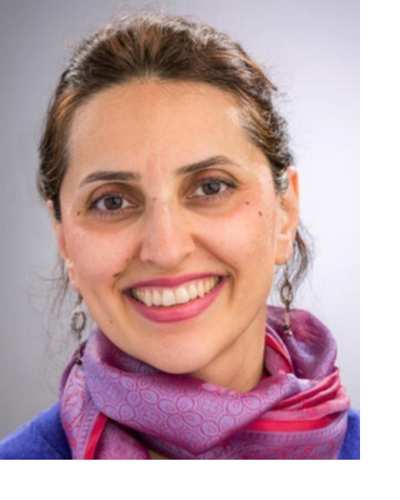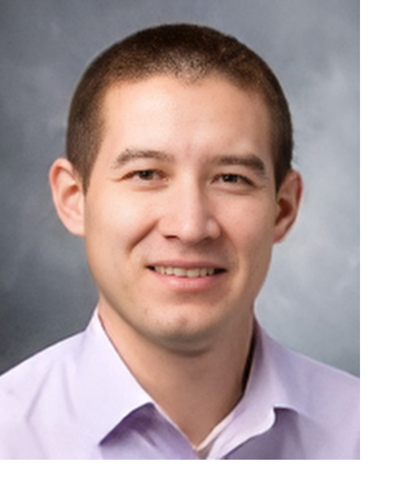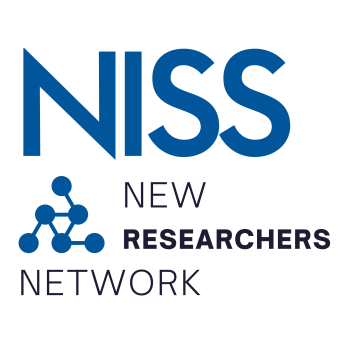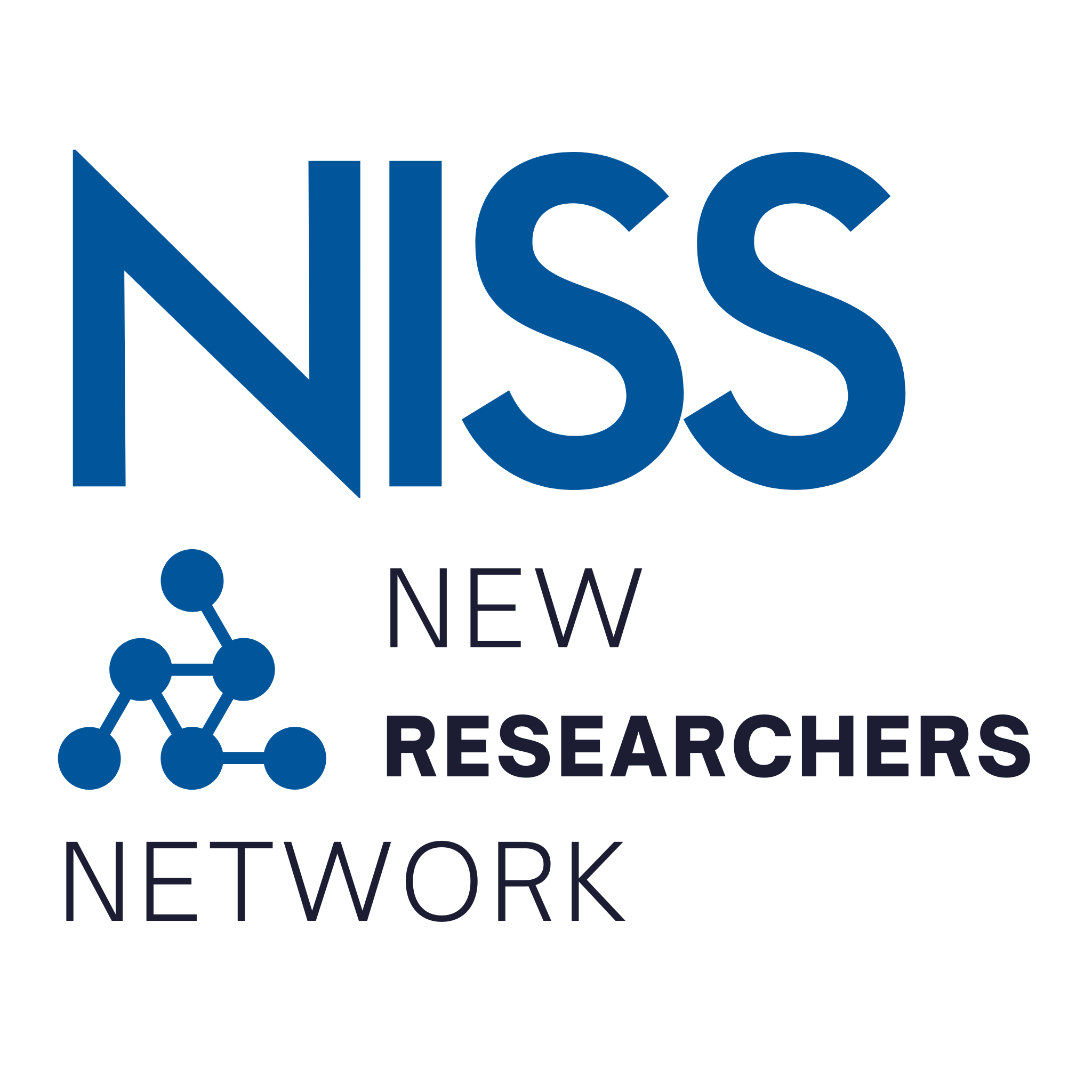Overview
Effective communication is a critical skill that everyone acknowledges as important, yet it is often missing from formal curricula in Statistics and Data Science. In this panel, designed for new researchers working or planning to work in collaborative research environments, experts will share their experiences and insights on why strong communication is essential for success. Panelists will discuss best practices, exchange ideas with each other, and engage with the audience through a Q&A session.
Attendees will gain valuable tips and strategies for improving their communication skills, whether it’s with collaborators, interdisciplinary teams, or stakeholders. This is a unique opportunity for early-career researchers to learn how to communicate their ideas clearly and effectively in a range of collaborative settings, setting the stage for more impactful and successful research.
Speakers
Sahar Zangeneh, RTI International & University of Washington
Joel Dubin, University of Waterloo
Justin Strait, Los Alamos National Laboratory
Moderator
Sharmistha Guha, Texas A&M University
About the Speakers
 Dr. Joel A. Dubin is a Professor in the Department of Statistics and Actuarial Science, and the School of Public Health Sciences, University of Waterloo, in Waterloo, ON, Canada, where he has been since 2005. Earlier, he was an Assistant Professor in the Division of Biostatistics, Department of Epidemiology and Public Health, at Yale University, from 2000-05. Joel received his Ph.D. in Statistics in 2000, from the University of California, Davis. Prior to entering his Ph.D. program in 1996, Joel worked in different biostatistics positions, including 1994-96 at the University of Texas M.D. Anderson Cancer Center in Houston, TX, after earning a Master’s in Applied Statistics from Villanova University in 1993. His current research interests emphasize developing methodology for the analysis of complex longitudinal data, and prediction modeling, across several health application areas. He has supervised or co-supervised 13 doctoral students and is currently supervising or co-supervising four more. He has also supervised 21 Master’s students. In addition, Joel is lead of the University of Waterloo Health Data Science Lab. Finally, he has been a Board member with the Statistical Society of Canada (SSC) and NISS, served as a Regional Advisory Board Member for ENAR of the International Biometric Society, has served on multiple committee roles with the SSC, including serving as President of the Biostatistics Section, and continues to be a member of the Affiliates committee of NISS.
Dr. Joel A. Dubin is a Professor in the Department of Statistics and Actuarial Science, and the School of Public Health Sciences, University of Waterloo, in Waterloo, ON, Canada, where he has been since 2005. Earlier, he was an Assistant Professor in the Division of Biostatistics, Department of Epidemiology and Public Health, at Yale University, from 2000-05. Joel received his Ph.D. in Statistics in 2000, from the University of California, Davis. Prior to entering his Ph.D. program in 1996, Joel worked in different biostatistics positions, including 1994-96 at the University of Texas M.D. Anderson Cancer Center in Houston, TX, after earning a Master’s in Applied Statistics from Villanova University in 1993. His current research interests emphasize developing methodology for the analysis of complex longitudinal data, and prediction modeling, across several health application areas. He has supervised or co-supervised 13 doctoral students and is currently supervising or co-supervising four more. He has also supervised 21 Master’s students. In addition, Joel is lead of the University of Waterloo Health Data Science Lab. Finally, he has been a Board member with the Statistical Society of Canada (SSC) and NISS, served as a Regional Advisory Board Member for ENAR of the International Biometric Society, has served on multiple committee roles with the SSC, including serving as President of the Biostatistics Section, and continues to be a member of the Affiliates committee of NISS.
 Sahar Zangeneh is a Senior Research Statistician at RTI who specializes in various aspects of the design and analysis of complex sample surveys. She develops novel statistical methods for non-ignorable missing data, using both classical and modern statistical methods, including parametric and non-parametric likelihood-based and Bayesian methods as well as machine learning tools. She has received multiple awards for her methodological research from scientific communities such as the American Statistical Association, the International Society for Bayesian Statistics, and the Institute of Mathematical Statistics. Before joining RTI in 2021, Dr. Zangeneh worked as a faculty biostatistician at the Vaccine and Infectious Disease Division at Fred Hutchinson Cancer Research Center, where she also completed her postdoctoral training. She conducted research for HIV and Covid-19 prevention and led the analysis of observational and interventional studies. In that capacity, she has developed and implemented research protocols for diverse domestic and international health projects. Dr. Zangeneh is also a Clinical Instructor at the University of Washington in Seattle, where she teaches and engages in curriculum development for various graduate-level courses. She is a member of the American Statistical Association, Institute for Mathematical Statistics, the International Statistics Institute, International Society for Bayesian Analysis, and the Iranian Statistical Society. She is passionate about engaging in initiatives for fostering inclusion and diversity and promoting STEM fields in underrepresented and underserved students.
Sahar Zangeneh is a Senior Research Statistician at RTI who specializes in various aspects of the design and analysis of complex sample surveys. She develops novel statistical methods for non-ignorable missing data, using both classical and modern statistical methods, including parametric and non-parametric likelihood-based and Bayesian methods as well as machine learning tools. She has received multiple awards for her methodological research from scientific communities such as the American Statistical Association, the International Society for Bayesian Statistics, and the Institute of Mathematical Statistics. Before joining RTI in 2021, Dr. Zangeneh worked as a faculty biostatistician at the Vaccine and Infectious Disease Division at Fred Hutchinson Cancer Research Center, where she also completed her postdoctoral training. She conducted research for HIV and Covid-19 prevention and led the analysis of observational and interventional studies. In that capacity, she has developed and implemented research protocols for diverse domestic and international health projects. Dr. Zangeneh is also a Clinical Instructor at the University of Washington in Seattle, where she teaches and engages in curriculum development for various graduate-level courses. She is a member of the American Statistical Association, Institute for Mathematical Statistics, the International Statistics Institute, International Society for Bayesian Analysis, and the Iranian Statistical Society. She is passionate about engaging in initiatives for fostering inclusion and diversity and promoting STEM fields in underrepresented and underserved students.
 Justin Strait is a Scientist in the Statistical Sciences Group at Los Alamos National Laboratory (LANL). His research expertise is in Bayesian and nonparametric modeling of complex object-oriented data (such as functions, shapes, images, and tensors). Many of the problems he works on at LANL are applied, collaborative problems in earth science, engineering, and materials science, and he has experience disseminating analyses to both statistics and non-statistics audiences. Justin earned a B.S. in Mathematics and Atmospheric Science from the University of Utah in 2013, before obtaining a M.S. (2016) and Ph.D. in Statistics (2018) from The Ohio State University. Prior to joining LANL, he was an assistant professor for three years at the University of Georgia. Justin has ample experience mentoring and teaching students and postdocs, and is passionate about the broader statistics and scientific community: he currently serves on LANL’s Postdoc Committee, is secretary for the Albuquerque Chapter of the American Statistical Association, and is on the Technical Program Committee for the DATAWorks 2025 conference.
Justin Strait is a Scientist in the Statistical Sciences Group at Los Alamos National Laboratory (LANL). His research expertise is in Bayesian and nonparametric modeling of complex object-oriented data (such as functions, shapes, images, and tensors). Many of the problems he works on at LANL are applied, collaborative problems in earth science, engineering, and materials science, and he has experience disseminating analyses to both statistics and non-statistics audiences. Justin earned a B.S. in Mathematics and Atmospheric Science from the University of Utah in 2013, before obtaining a M.S. (2016) and Ph.D. in Statistics (2018) from The Ohio State University. Prior to joining LANL, he was an assistant professor for three years at the University of Georgia. Justin has ample experience mentoring and teaching students and postdocs, and is passionate about the broader statistics and scientific community: he currently serves on LANL’s Postdoc Committee, is secretary for the Albuquerque Chapter of the American Statistical Association, and is on the Technical Program Committee for the DATAWorks 2025 conference.
About the Moderator
 Sharmistha Guha is an Assistant Professor in the Department of Statistics at Texas A&M University. She previously served as a postdoctoral fellow in the Department of Statistical Science at Duke University. Dr. Guha earned her Ph.D. in Statistics from the University of California, Santa Cruz, in 2019. Her research focuses on the development of Bayesian methods for object-oriented data, supervised network data, and dimensionality reduction, drawing motivation from applications in neuroscience and network security systems. Additionally, she develops methods in Bayesian causal inference and record linkage for financial data. Her contributions to the field have been recognized with the 2022 Blackwell-Rosenbluth Award, which honors outstanding junior Bayesian researchers, and an Honorable Mention in the 2021 Savage Award Competition, awarded by the International Society for Bayesian Analysis (ISBA) for outstanding doctoral dissertations in Bayesian econometrics and statistics.
Sharmistha Guha is an Assistant Professor in the Department of Statistics at Texas A&M University. She previously served as a postdoctoral fellow in the Department of Statistical Science at Duke University. Dr. Guha earned her Ph.D. in Statistics from the University of California, Santa Cruz, in 2019. Her research focuses on the development of Bayesian methods for object-oriented data, supervised network data, and dimensionality reduction, drawing motivation from applications in neuroscience and network security systems. Additionally, she develops methods in Bayesian causal inference and record linkage for financial data. Her contributions to the field have been recognized with the 2022 Blackwell-Rosenbluth Award, which honors outstanding junior Bayesian researchers, and an Honorable Mention in the 2021 Savage Award Competition, awarded by the International Society for Bayesian Analysis (ISBA) for outstanding doctoral dissertations in Bayesian econometrics and statistics.
About the NISS New Researchers Network
Event Type
- NISS Hosted
Website
Location
Policy


